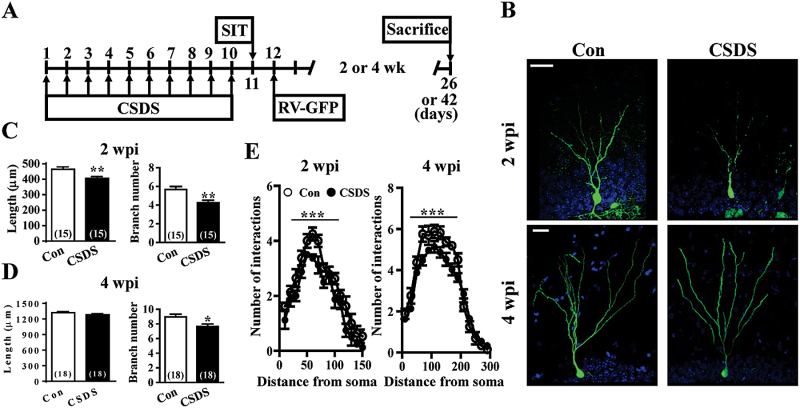Figure 2.
Chronic social defeat stress (CSDS) results in a short-lived decrease in dendritic complexity of adult-born dentate granule cells (DGCs). (A) Schematic representation of the experimental designs for comparing individual differences in the effect of CSDS on morphogenesis of adult-born DGCs. Following a 10-day CSDS, mice were separated into susceptible and unsusceptible subpopulations at day 11. Control (Con) and susceptible mice to CSDS were then received intra-dentate gyrus (DG) injections of GFP-expressing retrovirus (RV-GFP) 24 hours after social interaction test (SIT). Mice were sacrificed 2 to 4 weeks after RV-GFP injection. (B) Representative images of adult-born DGCs expressing GFP (green) at 2 and 4 weeks postinjection (wpi) of retroviruses into the DG of Con and CSDS mice. All slices were counter-stained with 4’,6-diamidino-2-phenylindole (blue). Scale bar = 20 μm. (C-D) Quantitification of the dendritic length and branch number of adult-born DGCs at 2 (C) and 4 wpi (D) from Con and CSDS mice. (E) Sholl analysis of the dendritic tree of adult-born DGCs at 2 and 4 wpi from Con and CSDS mice. The total number of neurons examined is indicated by n in parenthesis. Data are presented as mean ± SEM. *P<.05, **P<.01, and ***P<.001 vs Con.

